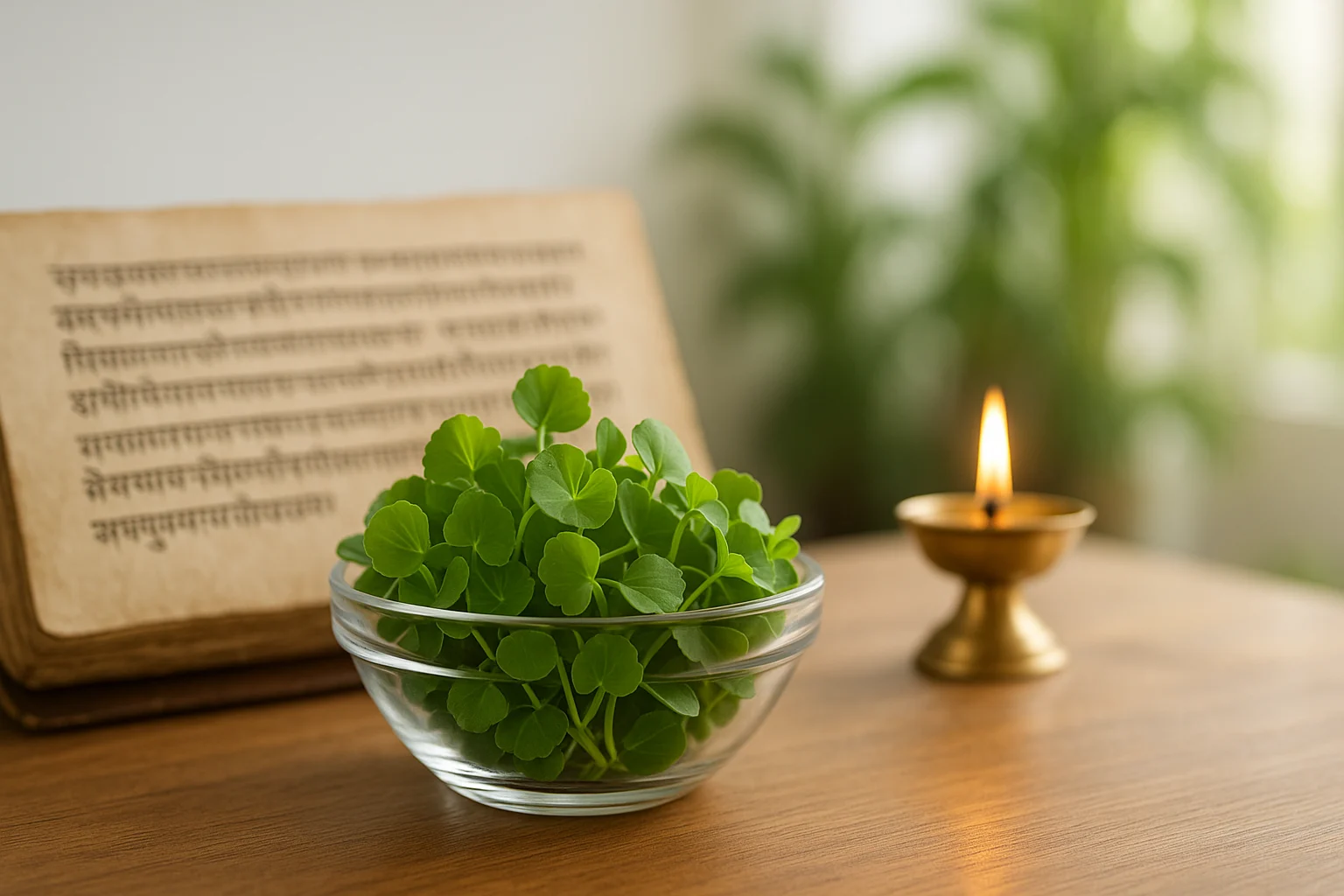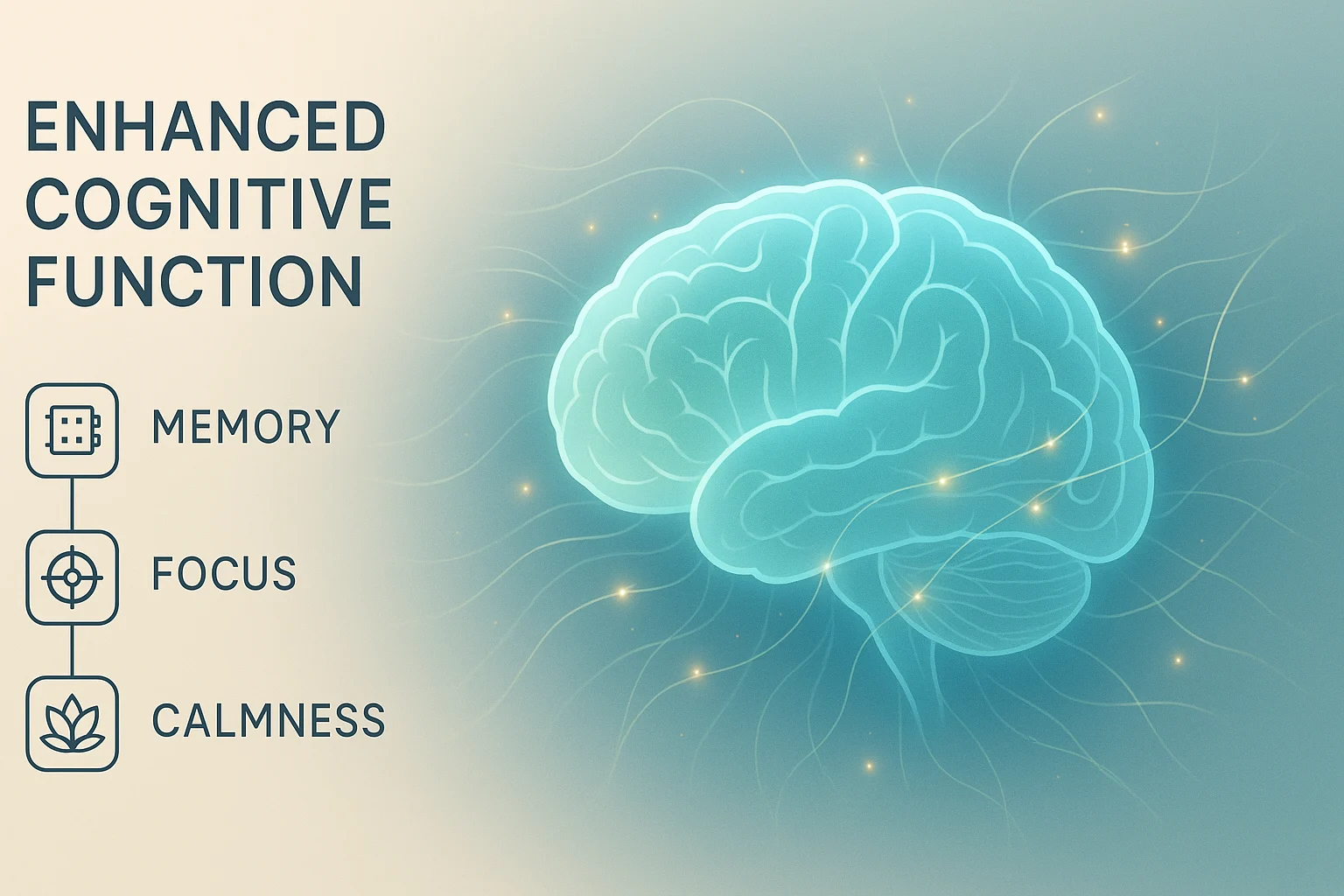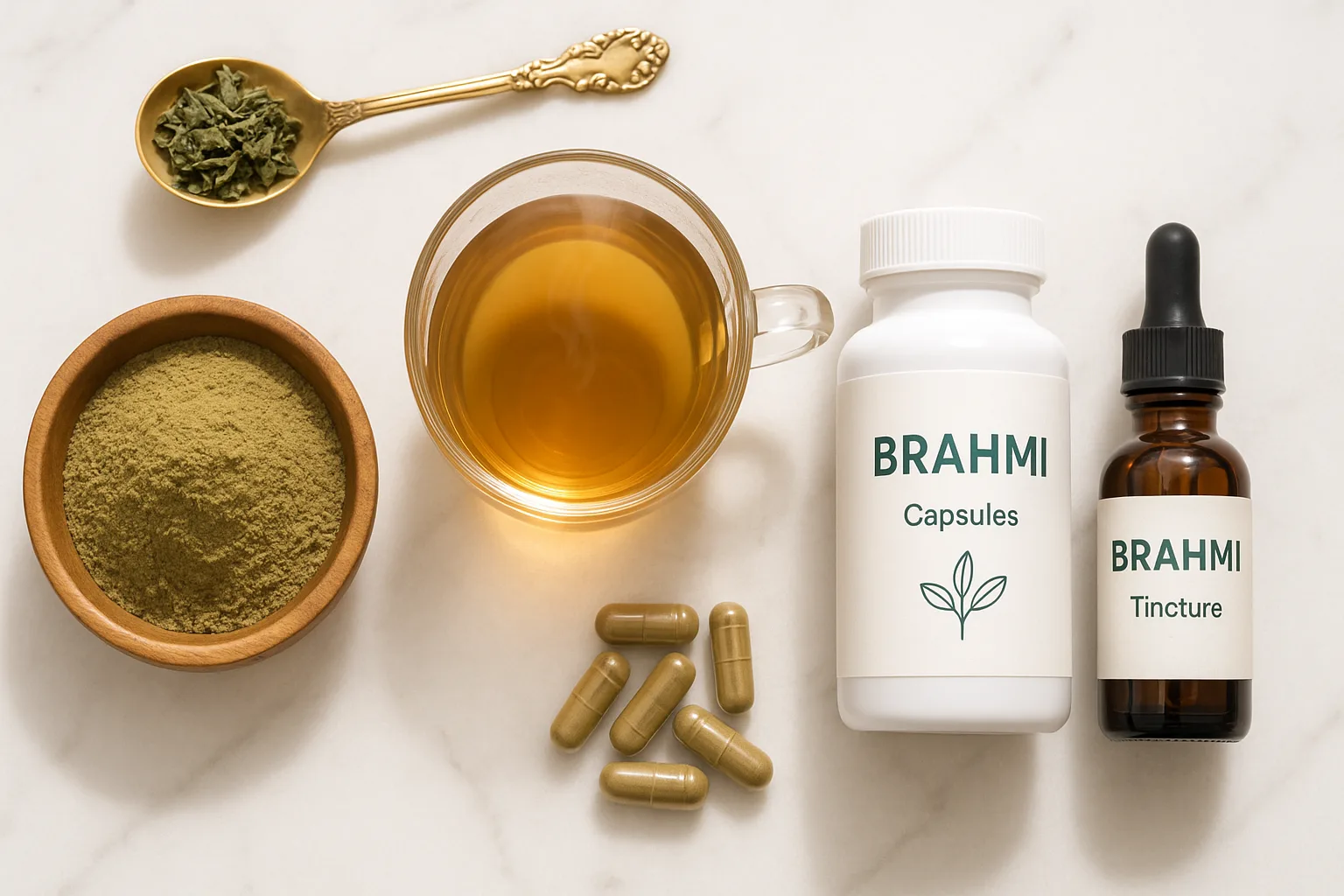
Ever feel like your brain’s in a haze? Same. That’s why this Ayurvedic herb is such a find. Many people look up health benefits brahmi to see how it may support memory, focus, and calmer moods. In busy days, a gentle helper for your mind can make a difference. Want to weave it into your routine? See how it fits with ayurvedic daily practices for a steadier, clearer you.
Boost Your Brain Now!This page contains paid/affiliate links. As an Amazon Associate we earn from qualifying purchases, and we may earn commissions from other partners—at no extra cost to you. Links marked with ‘#ad’ are affiliate links, meaning we may earn a commission at no extra cost to you. Learn more.
Table of Contents
- What Is Brahmi? Origins & Uses
- Evidence for Brain Health
- Key Benefits for Your Mind
- Ayurvedic Cognitive Herbs: How Brahmi Stacks Up
- Additional Wellness Notes
- How to Add Brahmi to Your Day
- User Experiences
- Track Your Brain Wellness
- Safety Tips for Using Brahmi
- Frequently Asked Questions About Brahmi
- Conclusion
What Is Brahmi? Health Benefits Brahmi & Origins
Brahmi (Bacopa monnieri) is a small, water-loving plant long used in Ayurveda as a “brain tonic.” Many people value its gentle, traditional approach to clearer thinking, memory, and relaxation. Learn more at The Ayurvedic Institute.
How Brahmi Supports the Mind: What Science Says
The benefits of this herb are linked to compounds called bacosides, which may help your mind work more efficiently. Here’s a quick tour of what research explores.

Brahmi Brain Health: Overview
Faster Brain Connections
Bacosides may help brain cells communicate, which can support learning and recall over time.
Protecting Your Brain
Daily stressors can wear you down. The herb contains antioxidants that may help protect cells from oxidative stress.
Easing Brain Inflammation
Plant compounds in this herb may help modulate inflammation, supporting a clearer mental state.
Supporting Plasticity
Early lab and animal work suggests Brahmi may support neuroplasticity. Human evidence is still limited.
Latest Research on Bacopa (Quick Summary)
Recent human studies explore how standardized Bacopa monnieri extracts may support aspects of memory, attention, or perceived stress over 8–12 weeks. Results are mixed but encouraging in some sub-measures. Typical designs are randomized and placebo-controlled, with daily servings of about 250–600 mg extract (often standardized to bacosides). Researchers note that any effects may build gradually and that more large, long-duration trials are needed.
- Memory & learning: Several trials report small improvements on certain memory tasks after consistent daily use.
- Attention & processing: Some studies suggest modest support for attention or information-processing speed.
- Stress & mood: Limited evidence points to reductions in self-reported stress; findings vary across studies.
Takeaway: Early evidence is promising but not definitive. Consistency and product quality matter, and individual responses differ.
Health Benefits Brahmi: Your Mind’s New Best Friend
Looking for natural ways to support sharpness? Below are the benefits of Brahmi most people look for.
Stronger Memory and Learning
One of the commonly discussed health benefits brahmi is memory support. It may help with recall and recognition.
Better Focus
By quieting background mental noise, the herb may help you stay on task—supporting brahmi mental clarity throughout the day.
Less Stress and Tension
Often described as an adaptogen, Brahmi may support a calmer mood without drowsiness. Pair with mindfulness techniques for stress for added effect.
Everyday Brain Resilience
Its antioxidant and anti-inflammatory properties may help you cope with daily stressors. Animal data are encouraging; human effects vary.
Brighter Mood & Easier Sleep
It isn’t a quick fix, but easing mental fatigue may help some people feel more upbeat and relax before bed.
Wind-Down Helper (Non-Brahmi)
A bedtime-friendly gummy some readers pair with yoga nidra and breathwork to support a wind-down routine.
Ease into sleep Partnered
No discount code needed — just click and explore.
Not medical advice; consult a healthcare professional for personal guidance.
Ayurvedic Cognitive Herbs: How Brahmi Stacks Up
Ginkgo is often linked to circulation, Ashwagandha to stress support, and this herb to memory and calm. They can complement one another depending on your goals.
More Ways Brahmi Helps You Feel Great
Traditionally, this herb is also used for digestion and general wellness.
Calming Your Gut
In Ayurveda, Brahmi is used to settle an upset stomach. Reduced gut tension can feel supportive for the mind, too.
Skin and Hair Traditions
Antioxidants may support overall skin wellness. Brahmi oil is traditionally used for scalp massage; evidence for hair growth is limited.
How to Add Brahmi to Your Day
This herb comes in several forms. Choose what fits your lifestyle.

Forms of Brahmi
| Form | What It Is | How to Use It |
|---|---|---|
| Powder | Ground leaves. | Stir into water, juice, or smoothies; or mix with honey. |
| Capsules | Powder or extract. | Follow the label serving size or your clinician’s guidance. |
| Tea | Dried leaves. | Brew a cup; optionally pair with Tulsi. |
| Tincture | Concentrated liquid. | Add drops to water as directed on the label. |
| Oil | Infused oil (external). | Massage into your scalp for a soothing ritual. |
Brewing note: Brahmi powder is very fine and can slip through metal strainers. To keep tea smooth, use a simple cotton tea bag or a coffee filter at the end. Try Housim reusable cotton tea filter bags (50-pack).
How Much to Take
Talk to a doctor for personal advice. General, non-medical guidance used by some people:
- Powder: 1–2 tsp (≈3–6 g) daily, divided.
- Capsules: 250–500 mg extract (20–50% bacosides) once or twice daily.
- Tea: 1–2 cups daily (about 1 tsp leaves per cup).
Make consistency easy. If you’re juggling morning/evening servings, a simple weekly AM/PM case helps you stay on track: EZY DOSE Weekly AM/PM (Large).
Baseline Before Brahmi: Sleep & Stress Home Test (15% Off)
Measure where your sleep and stress markers are today, then re-test in 8–12 weeks to see how your routine is trending.
Check your levels Partnered
Use code Max15 for 15% off sitewide.
Not medical advice; consult a healthcare professional for personal guidance.
How to Choose Quality Brahmi
Not all products are the same. For a consistent experience, look for:
- Standardization: The label lists bacosides (e.g., 20–50%) and the botanical name Bacopa monnieri.
- Testing: Third-party certificates for identity, purity, heavy metals, and microbes.
- Transparent formulas: Clear amounts per serving; be cautious with “proprietary blends” that don’t disclose bacoside content.
- Responsible sourcing: Reputable brand, batch/lot numbers, and storage directions.
Capsules vs Powder: pick what fits your routine
VSQuick pick: Capsules standardized to 20% bacosides are the simplest way to stay consistent; powder is great if you enjoy tea or smoothies.
| Format | Double Wood — Bacopa (20% bacosides) capsules |
Banyan Botanicals — Bacopa powder (USDA Organic) |
|---|---|---|
|
Clean, repeatable servings make 8–12 week trials easier to stick with. |
Simple for evening tea or a morning smoothie; adjust serving to taste. |
|
| Form |
|
|
| Pack size |
|
|
| Why choose this |
|
|
| Pros |
|
|
| Consider |
|
|
| Shop |
Prefer certified organic? Himalaya Organic Bacopa caplets — labeled by “Bacopa saponins” (not bacosides); helpful if organic certification is your priority.
Real People, Real Brahmi Stories
Curious how it feels for real users? Here’s what some folks shared.
Maria, 55: “After six weeks of capsules, recall felt quicker and mornings clearer.”
David, 28: “Nightly tea helped me feel calmer and focus better at work.”
Priya, 21: “Adding powder to smoothies made studying feel smoother.”
Track Your Brain Wellness
Want to see how Brahmi may be working for you? Use this tool to check in on your mental vibe.
Brain Wellness Tracker
Click a button to share your headspace today:
Not sure which format fits you best?
Safety Tips for Using Brahmi
This herb is usually well tolerated in typical amounts, but keep these notes in mind:
- Side Effects: Mild nausea or stomach cramps can occur at first; taking with food may help.
- Medication Interactions: Check with your doctor if you take thyroid meds, sedatives, or blood thinners.
- Pregnancy/Breastfeeding: Avoid unless your healthcare provider approves; research is limited.
- Health Issues: If you have a slow heart rate, ulcers, or thyroid concerns, seek medical advice first.
Start low, notice how you feel, and discontinue if anything seems off.
Frequently Asked Questions About Brahmi
Conclusion: Why Brahmi’s Worth Trying
This plant has a long history in Ayurveda. Its brahmi brain health support may help with focus and memory, while the broader benefits of Brahmi can complement practices like yoga and breathwork for stress relief. Move mindfully, be consistent, and check in with a professional to find what’s right for you.


